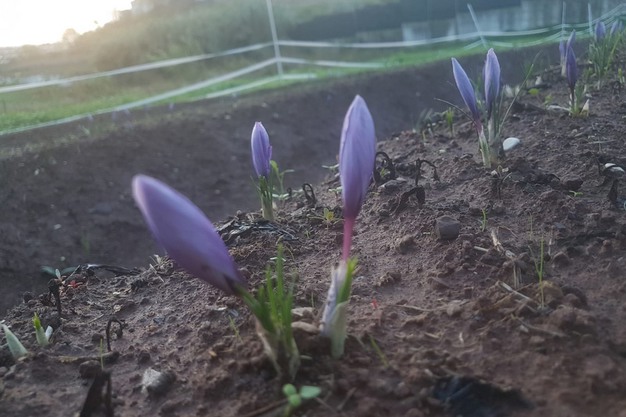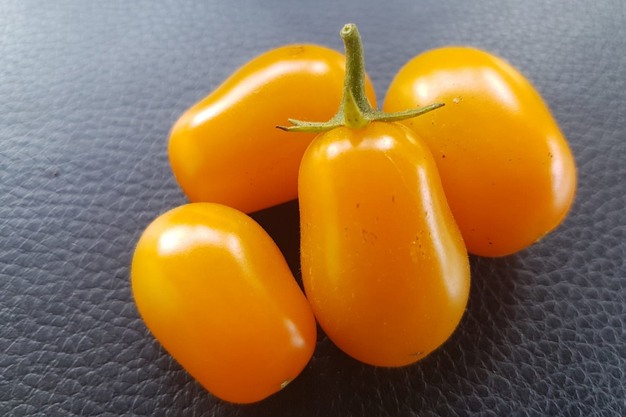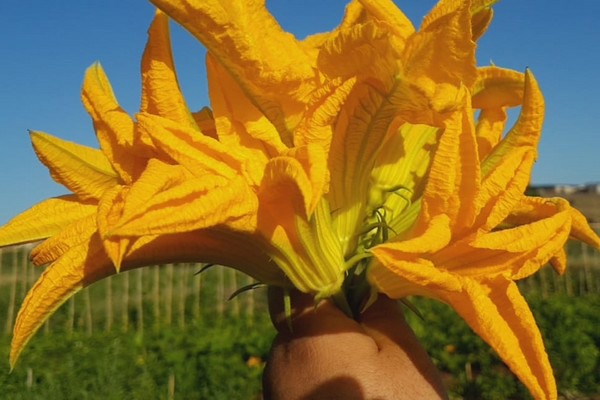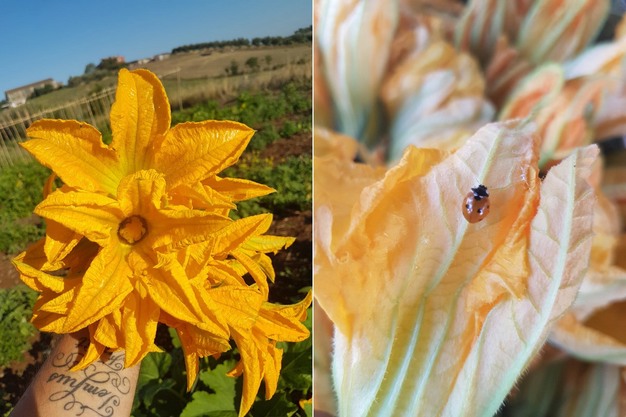Walter Schettini is an urban farmer out of Rome who serves the southern part of the Italian capital with fresh organic produce. “We are certified organic,” he explains. “We mainly focus on seasonal produce, which we grow in soil.” Because of that, the veggies coming out of Azienda Agricola Caparbio vary according to the season. “During the summer, we grow tomatoes, zucchini, eggplants, and peppers. In the wintertime, we grow broccoli and fennel, for instance.”
Farming resilience
The story behind the Azienda Agricola il CaparBio is one of family traditions that has advanced to stay up to date with as much as possible. “I inherited this land from my wife’s grandfather. He taught me the craft, which meant that initially, we heavily relied on chemicals,” Walter explains. As many people from the ‘good old days,’ when something pest-related happened in the field, they’d immediately spray some chemical principle and let that do the magic. “However, over the last 10 or so years, many companies specializing in biological crop protection opened up, making it easier for everyone to source biologicals.”

Being an organic grower, Walter now heavily relies on IPM and biologicals. “Prevention and active control are the pillars of my IPM regimen.” At the same time, it also means that he must make tough decisions. “If I realize that a pest or pathogen is getting out of control, I’d rather destroy the entire crop than spray some chemicals on it.” Switching entirely to biological IPM has been quite the turn for Azienda Agricola Caparbio. “We certainly paid the price,” points out Walter. “For instance, we have some olive trees, and when the grandfather was alive, we used to harvest around 1,400kg of olives. When I took the helm, it took us years before we could get to the same level. This was because plants were basically addicted to steroids, and they hardly withstood the change to biological IPM. I’d rather get half the amount of olive oil now than going back to chemicals.”

A matter of principle
To be a certified organic urban farmer is more than just growing some food, after all. Walter takes care to explain that everything he does follows strict principles to which he abides at all costs. This also means that successful results provide an even bigger payoff. “For instance, my yellow cherry tomato is my star. Certainly, variety plays a role in this, but a lot also has to do with the cultivation method. During one cycle, I planted the red and yellow cherry tomatoes very close to each other and eventually tested them both to better understand what was going on. Well, the brix degrees of the yellow tomatoes were just no match to the red cherry tomatoes.”

Promoting the urban farming movement
While everything is going alright on the cultivation side of things, the same cannot be said for the urban farming movement in Italy. “Recently, you could see a lot of companies like mine sprouting up throughout the country,” Walter explains. “Yet, it’s very hard for them to take off properly. Especially if you look at a city like Rome, which is so big that’s several cities in one, urban farmers may have a harder time getting a significant market share. At the same time, people in cities are much more aware of what they buy and care about the origin of a product and how it has been produced. This also leads consumers to specifically go to urban farmers like me to get their weekly share of veggies.”

On top of the difficulties of dealing with a maze-like city, urban farmers, too have been affected by the rising prices of gas, fertilizers, and diesel. “Smaller companies are those that suffer the most from such huge price increases,” Walter points out. “This is especially true for all those certified organic realities. I used to pay around 25-30 euros per 100kg of fertilizer, and now it’s sold for 80 euros. Not to mention the price of electricity and the like. It’s crucial to implement some regulation that promotes certified organic urban farmers to boost healthy eating habits in cities while simultaneously allowing entrepreneurs to exercise their craft at their top potential.”
For more information:
Azienda Agricola il CaparBio
Tel.: 351 960 0097
ilcaparbio@gmail.it
Facebook
